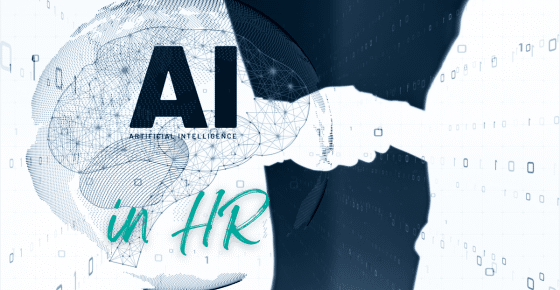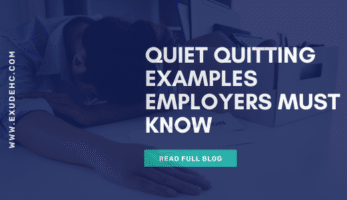Human Capital Management
Embracing AI: A Beginner’s Guide for HR Professionals

In the rapidly evolving landscape of Human Resources (HR), Artificial Intelligence (AI) is emerging as a game-changer. AI can streamline processes, enhance decision-making, and improve employee experiences, but integrating it into your HR practices might seem daunting. Here’s a straightforward guide to help HR professionals start leveraging AI effectively.
- Understand the Potential of AI in HR
- Start Small: Identify Key Areas for AI Integration
- Choose the Right AI Tools
- Train Your Team
- Monitor and Evaluate
- Ensure Ethical Use of AI
1. Understand the Potential of AI in HR
AI offers a range of applications that can revolutionize HR functions. Key areas include:
- Recruitment: AI-driven tools can automate resume screening, match candidates to job descriptions, and even conduct initial interviews, freeing up valuable time for HR teams.
- Onboarding: AI can facilitate personalized onboarding experiences, providing new hires with tailored information and support.
- Employee Engagement: AI can analyze employee feedback and engagement surveys to identify trends and areas for improvement.
- Performance Management: AI-powered analytics can help track and predict employee performance, assisting in the development of targeted training programs.
Explore various free AI tools to evaluate your options and find the best fit for your needs before committing any funds.
2. Start Small: Identify Key Areas for AI Integration
Begin by identifying specific HR functions that could benefit from AI. For instance:
- Automating Administrative Tasks: Consider using AI tools to handle repetitive tasks like scheduling and data entry.
- Enhancing Recruitment Processes: Implement AI to sift through resumes and schedule interviews, streamlining your hiring process.
Starting with these manageable areas allows you to gain experience and demonstrate the value of AI within your organization.
3. Choose the Right AI Tools
Research and select AI tools that align with your HR goals. Look for solutions with:
- User-Friendly Interfaces: Tools should be intuitive and easy for your team to adopt.
- Integration Capabilities: Ensure the AI tools can integrate with your existing HR systems.
- Scalability: Choose tools that can grow with your organization’s needs.
Many HR systems are beginning to integrate AI features into their software, so watch for these updates to see how they can be incorporated into your processes.
4. Train Your Team
For successful AI implementation, training is crucial. Provide your HR team with the knowledge and skills needed to effectively use AI tools. This includes:
- Understanding AI Basics: Ensure your team grasps the fundamentals of AI and its benefits.
- Hands-On Training: Offer practical training sessions to familiarize your team with new tools and processes.
- Continuous Learning: Encourage ongoing learning and adaptation as AI technology evolves.
Consider designating a team member interested in AI to explore and test solutions, or form a group to pilot various tools for the team.
5. Monitor and Evaluate
Once AI tools are in place, regularly assess their impact on your HR operations. Key metrics to monitor include:
- Efficiency Gains: Measure how AI has improved efficiency in specific HR functions.
- Employee Feedback: Gather feedback from employees on their experiences with AI-driven processes.
- ROI Analysis: Evaluate the return on investment by comparing the costs of AI tools with the benefits gained.
AI is continuously evolving, so stay updated on the latest trends and upgrades while regularly evaluating cost options.
6. Ensure Ethical Use of AI
As with any technology, ethical considerations are paramount. Ensure that AI tools are used in ways that promote fairness and transparency. Key considerations include:
- Bias Mitigation: Regularly audit AI systems for bias and ensure they are designed to promote diversity and inclusion.
- Data Privacy: Adhere to data protection regulations and safeguard employee information.
Regularly review your handbook to ensure it includes language addressing AI and your data privacy policies.
Conclusion
Integrating AI into HR practices can lead to significant improvements in efficiency and effectiveness. By starting small, choosing the right tools, and investing in team training, HR professionals can harness the power of AI to enhance their operations and drive better outcomes for their organizations. Embrace the future of HR with AI and unlock new possibilities for success!
Exude Human Capital Consulting is a consulting firm providing dynamic solutions in HR outsourcing, compensation strategies, strategic advisory, organizational and cultural assessments, DEIB advisory and training, coaching, and leadership development programs. Contact us today to learn more.








